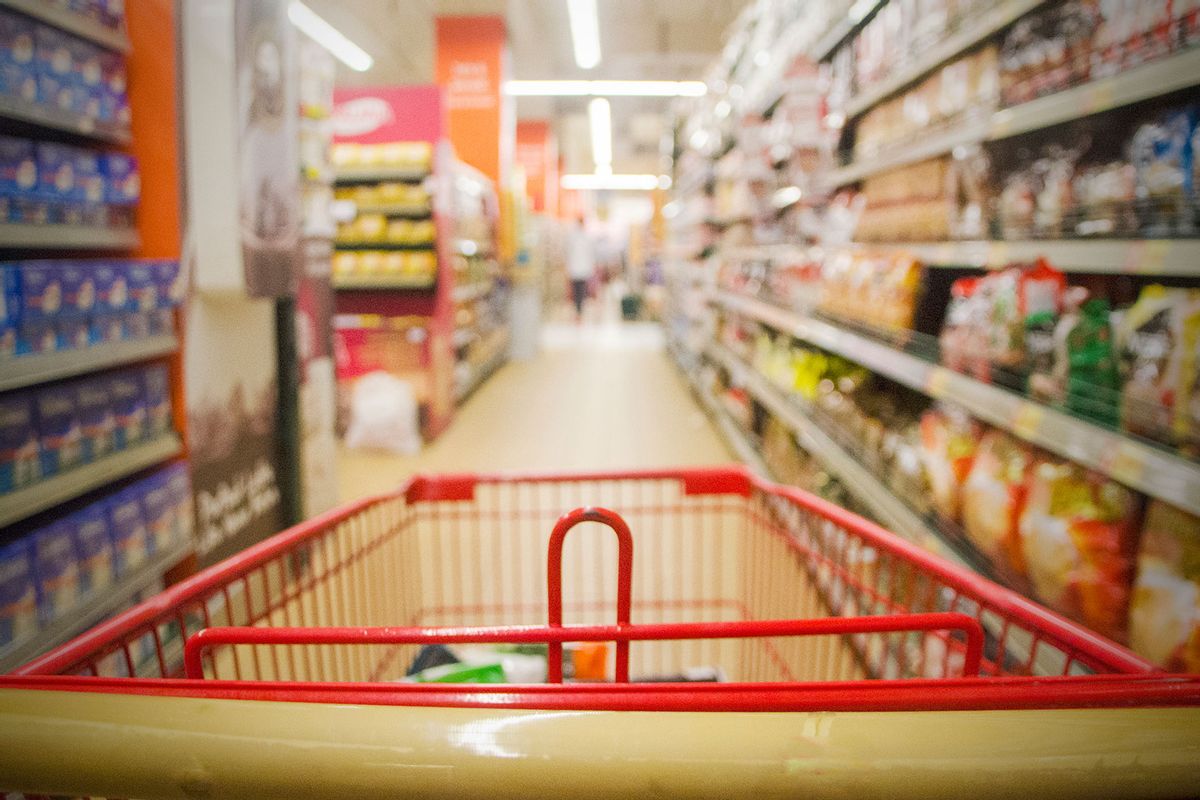In recent years, a number of conservative-owned food and beverage products that are overtly partisan have exploded onto the market, ranging from Black Rifle Coffee Company, which the New York Times described as having the potential to become the“Starbucks of the Right,” to Ultra Right Beer, which is currently trying to “fight the communists” in Georgia by selling a collectible six-pack featuring former president Donald Trump’s mugshot on the cans.
However, the clearest insights into the conservative thought process aren’t necessarily gleaned from what products they buy to purposely signal their beliefs — but rather what else they have in their grocery carts.
As both sociologists and market researchers have found, in addition to shaping how we see social events, political ideology has a profound influence on the choices we make in everyday life, including simple supermarket purchasing decisions. However, the impact of those choices doesn’t just end in the check-out aisle; the same motivations that prompt someone’s grocery list extend to attitudes that can inform policy decisions surrounding food waste, distribution and access.
This is especially true as the rates of food insecurity worsen across the United States, which was one of the motivating factors behind a new study in the journal Appetite — which specializes in the cultural, social, psychological, sensory and physiological influences on the selection and intake of foods and drinks — that assesses how political ideology impacts whether or not a consumer will buy imperfect fruits and vegetables (or FaVs).
“Reducing food waste not only enhances current and future food security but also mitigates adverse environmental and financial impacts,” the study authors write. “Considering the gravity of the problem, recommending ways to reduce food waste assumes great significance, and to do so, we first need to understand the factors that drive food waste. In this investigation, we identify one such factor – imperfect produce, defined as foods that are non-uniform in shape, color, or texture.”
They continue: “Food waste is often predicated on consumer rejection of ugly or imperfect produce, and some estimates suggest that in the U.S., as much as 20% of fruits and vegetables are thrown away because of cosmetic imperfections.”
A big part of combatting that staggering amount of largely superficial waste is understanding why certain market segments would pass over or discard imperfect produce that otherwise tastes the same as its conventionally attractive counterparts. In this study, the researchers sought to do just that and, through a series of four separate surveys, came across an interesting discovery: Customers who were politically conservative were markedly less likely to buy imperfect fruits and vegetables than liberal customers, and it was largely due to their “lower openness to experience.”
To expand upon their findings, the study authors point to a 2007 study titled “Are needs to manage uncertainty and threat associated with political conservatism or ideological extremity?” in which the authors wrote that liberals largely prefer social change, equality, progress and flexibility while conservatives anchor on inequality, tradition and stability.
We need your help to stay independent
“The idea is that there is an especially good fit between the need to reduce uncertainty and threat, on the one hand, and resistance to change and acceptance of inequality, on the other, insofar as preserving the [inegalitarian] status quo allows one to maintain what is familiar and known while rejecting the risky, uncertain prospect of social change,” they wrote.
This extends beyond a customer’s produce preference. Similar research over the last decade has found that conservatives are “more reluctant to eat unfamiliar, novel food,” show less of an interest in local and organic food, and also tend to stigmatize vegetarianism.
“Indeed, conservatives prefer familiar products, reject novel products, and favor national brands which presumably represent tradition and stability,” the authors of the 2023 imperfect FaVs study concluded.
So, how can this new knowledge be leveraged to ultimately reduce food waste and alleviate food insecurity? The study authors suggest that it could inform the messaging around selling imperfect produce. In blue states, or blue dots in otherwise red states, supermarkets may want to advertise using appeals to sustainability, authenticity and food waste.
However, in markets where the clientele veers more conservative, supermarkets may want to try tapping into a sense of tradition, with a message like: “Most produce was imperfect decades ago!” Whether a similar appeal — perhaps going super traditional with “Jesus wouldn’t let anyone go hungry” — will work on the House floor this year remains to be seen.

Shares